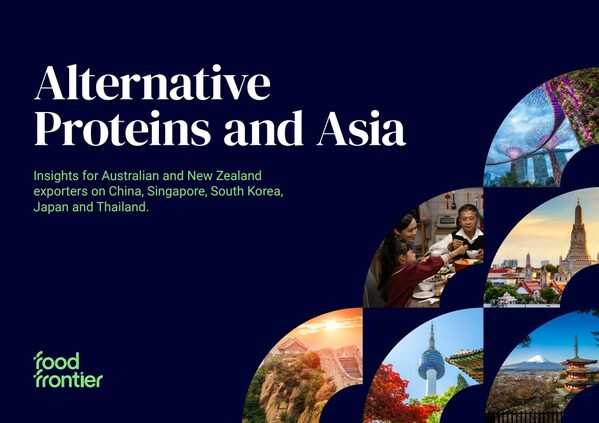Asia, home to over 60% of the world’s population, is a melting pot of diverse cultures, languages, and food habits. With its rich history of consuming traditional plant proteins like tofu, tempeh, and various ‘mock meats’, the region has seen a significant rise in animal meat consumption over the past three decades. This surge in demand, coupled with the global prediction that meat consumption will increase by 73% by 2050, has led to a pressing need for sustainable alternatives.
Enter the world of cultivated meat and alternative proteins. These innovative solutions aim to meet the growing demand for meat without the environmental and ethical concerns associated with large-scale livestock farming. The report from Food Frontier sheds light on the burgeoning alternative protein market in Asia, focusing on countries like China, Singapore, South Korea, Japan, and Thailand.

In Singapore, where cultivated meat has received the green light for sale, over half of the consumers are aware of its existence. However, when it comes to actually purchasing alternative protein products, Singapore ranks in the middle among the five countries studied. China and Thailand emerge as the frontrunners, with consumers showing a higher willingness to try cultivated meat. A significant portion of these consumers view cultivated meat as an environmentally friendly option.
The report also highlights that while cultivated meat and products derived from precision and biomass fermentation are relatively new to the Asian market, there’s a general openness to trying these products. China leads in consumer awareness for these products, with Thailand showcasing the most enthusiasm. Regulatory discussions are underway in most of these countries, emphasizing the rapid evolution of the industry. As these products become more familiar, public education will play a pivotal role in increasing awareness and acceptance.
Asia’s alternative protein market, which includes mock meat and plant-based meat, is valued at a whopping USD 4.32 billion as of 2023. This figure is expected to skyrocket to USD 13.63 billion by 2027, indicating the vast potential of this sector. In 2022 alone, the Asia Pacific region saw an investment of USD 652 million in alternative proteins.
The report underscores the importance of diversifying protein offerings to meet the escalating demand. With the global shift towards sustainable and ethical consumption, cultivated meat and alternative proteins present a promising solution. As Asia continues to embrace these innovations, the future of food in the region looks greener, healthier, and more sustainable.
